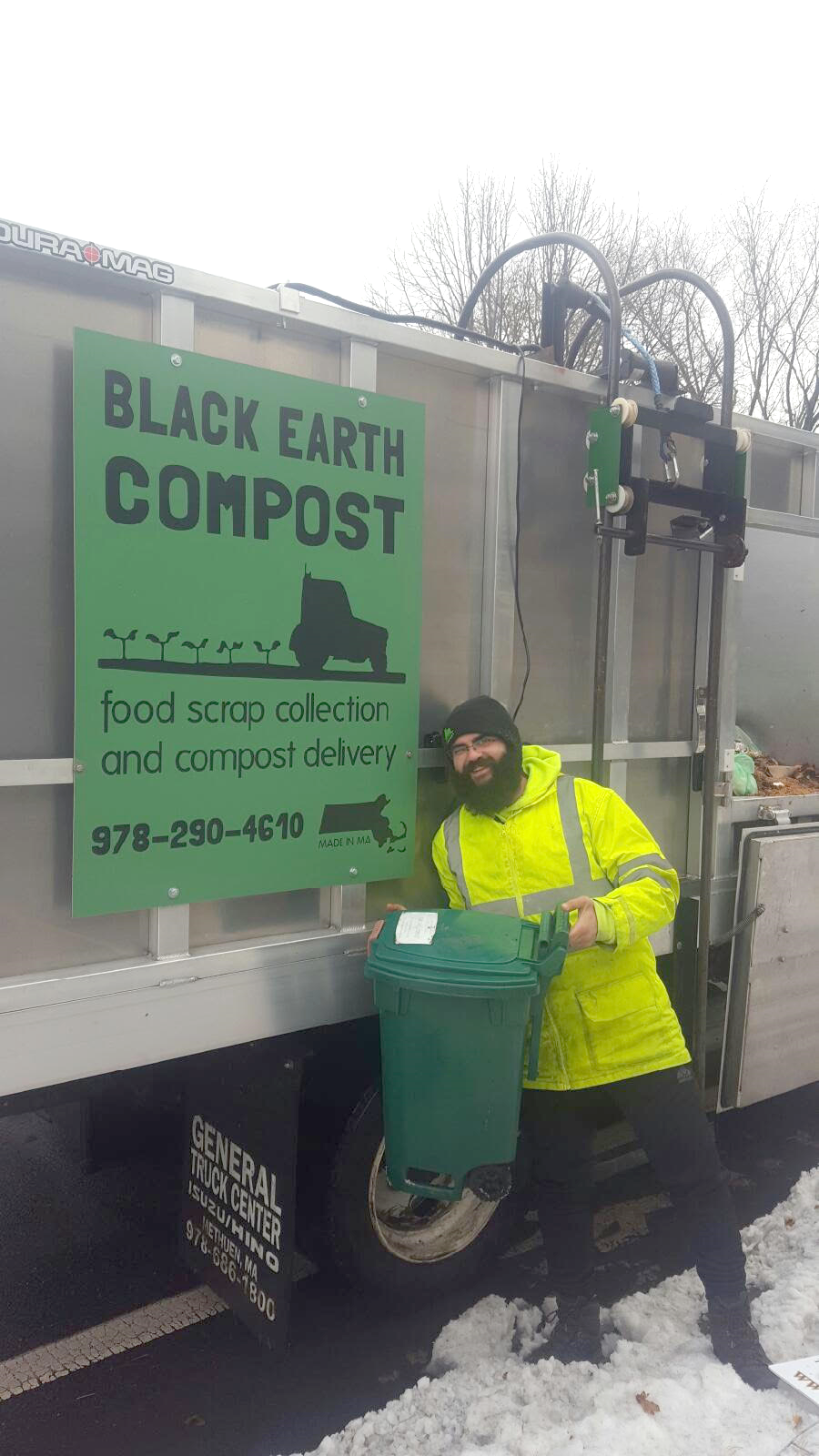A group of ecologically compassionate people including Karen Mallozzi, Sybil Schlesinger, and Beverly Rich, organized under the name “Natick Neighbors Compost” and established a curbside composting service available to Natick residents and businesses, to extend the opportunity for communal composting after a pilot program operated by the Natick Department of Public Works concluded. The DPW provided bins and compostable bags to participants, picked up the bags alongside trash and recycling and delivered it to a composting facility.
The pilot program ended the week of Halloween. In anticipation of the cessation, Natick Neighbors Compost researched independent contractors and chose the company Black Earth Composting to continue the service, beginning the following week. The organizers advertised at the farmers’ market, the public library and the Community Senior Center, and recruited participants by word of mouth, “neighbor to neighbor,” said Mallozzi. “It took a lot of effort but in a short amount of time people were very receptive.” They quickly reached their initial goal of 500 households or businesses. If their next goal of 1,500 is reached, Mallozzi said the Town may consider resuming it permanently.
According to the list provided by Black Earth, many waste products can be included in the compost collection. Dairy products, meat and bones, seafood and shells, fruit and vegetables, popsicle sticks, wine corks (made of real cork), paper towels and anything designed to be compostable are all accepted. Diapers, dryer sheets, and cartons from milk or broth which contain plastic or foil components are not biodegradable.
Anything included in the compost saves space in the blue bags required for trash collection. Blue bags are sold in packs of 10 and cost $17.50 for 33-gallon bags and $10 for 15-gallon bags. Composting reduces the quantity of bags needed and spares them from the incinerator. “I urge people to consider it,” Mallozzi said. “It’s fast and easy to shove it down the disposal, which is better than incinerating, but not optimal.” Garbage disposal waste can lead to nutrient blooms in lakes.
According to www.natickma.gov, 41% of residential trash is food waste. “I was amazed at how much food waste I have on a regular basis, never mind holidays,” said Mallozzi. “My trash never stinks because there’s no food in it, and it’s better for the environment.”
Black Earth provides a 13 gallon bin and compostable bag liners. The website blackearthcompost.com offers year and half-year services. The waste is processed in Manchester, MA and once it produces fertile compost, participants in the program have access to use to the compost in their gardens and lawns.
“This was a citizen-led effort,” Mallozzi said. “It is the logical next step to recycling.”
For more information, contact Natick Neighbors Compost at natickcompost@gmail.com or Black Earth Composting at blackearthcompost@gmail.com.

Issue Date:
December, 2018
Article Body:
